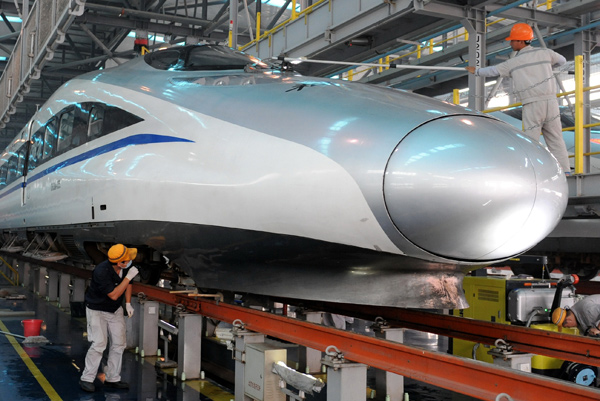By Modeste Schwartz.
Romania – Last Thursday, as reported by the Romanian news agency Agerpres, the Official Monitor of Romania published the decision by Prime Minister Mihai Tudose (seated on June 29) to appoint the lawyer Gheorghe Piperea as his honorary adviser, replacing Eugen Teodorovici, who had been appointed at the time of Tudose’s assumption of office but whose resignation he “accepted” last week for not respecting his teams “discipline of communication”.
Knowing what kind of remarks this euphemistic phrasing refers to (under the cover of irony, Teodorovici had nearly accused his own government of manipulating macroeconomic indicators, especially concerning the public deficit), it is possible to suspect that the Tudose / Teodorovici divorce means much more than mere stylistic divergences.
Former Minister of European Funds and previous Minister of Finance under the last of PM Ponta’s governments, Teodorovici had arrived in politics equipped with a master’s degree in “International Relations and European Integration”; his generation (he was 18 years old in 1989) clearly bears the stamp of the TINA (“There Is No Alternative”)-like neo-liberal thinking of the 1990s. Therefore, although his links with V. Ponta (notoriously linked to the Romanian “intelligence community”) and other biographical indices may leave doubts, it is not necessary to presuppose any manipulation or infiltration to explain the “verbal slide” which, after only 21 days, cost him his post. His remarks on the deficit figures (which would be “negotiated within the party”) probably have – as in most countries of the world – some reflection in reality: knowing Romanian customs, one would be very surprised to learn that Bucharest would renounce the benefits – so appreciated from Washington to Moscow, through London, Paris and Berlin – of “accounting cosmetics”. Nevertheless, the context in which this “off-hand comment” appeared is not insignificant, for it is the context of a widespread political and media onslaught against the ruling PSD party, and, within the PSD, against the Dragnea party-line – in both cases: fundamentally against the economic policies of previous PSD governments, which can be broadly described as neo-Keynesian (minimum wage and social spending increases), with some timid features of neo-Gaullism (a sovereign fund project). In this context, Eugen Teodorovici could not have been unaware that the criticism he was launching would be interpreted, beyond the strictly methodological dimension, as a call to return to the disastrous austerity policies of the 2000s which his former boss V. Ponta had begun questioning, but were in fact abandoned only after the PSD’s electoral tsunami of December 2016.
Teodorovici, nevertheless, partly owed his counselor position to his political loyalty to the Dragnea line (to widespread surprise, he last month voted in favor of the censure motion initiated by Dragnea and which led to the fall of the Grindeanu government, which enjoyed Ponta’s support), so that one can grant the benefit of the doubt to Teodorovici’s sincerity: for this die-hard neo-liberal, austerity is most likely the only conceivable solution. Indeed, the neo-Keynesian policy in progress, which already seems to be bearing fruit, has only one major flaw, namely that it cannot be financed by current tax revenues. Here is where the toolbox of a neo-liberal economist, even a “social-democratic” one, reaches its limits. Due to his mental formatting, Teodorovici is probably unable to envisage a boost in tax revenue beyond solutions such as VAT increases, which the PSD rightly refuses, since they would not only be unpopular, but also very likely counter-productive. And yet, an objective analysis of the current Romanian economy clearly shows that solutions do exist, but their “heterodoxy” certainly places them beyond Eugen Teodorovici’s intellectual reach.
That is why the appointment of Gheorghe Piperea as Teodorovici’s replacement struck like a thunderbolt (discreet to be sure, as it was audible only to those whose hearing had been attuned to economic policy, but a thunderbolt nonetheless).
Indeed, Piperea, by means of blogging activity that has been quite noticeable of late, is one of the few – but not one of the least – whose economic analysis implicitly points to such “heterodox” solutions which Teodorovici would not dare, it seems, consider even in his most tormented nightmares.
Let’s listen in (I’ll translate a portion of a Facebook post by Piperea):
“… 82% of Romanian GDP is “produced” by multinational enterprises [note: the quotation marks are probably an allusion to the fact the staffs of multinationals are almost exclusively Romanian, their capital almost exclusively foreign, and the external technological input often minimal]. No one can compete with these multinationals, especially since, as Isărescu hypocritically observed a few days ago, Romanian companies cannot count on [Romanian] banks to capitalize and finance them. [note: the adverb “hypocritically” is obviously an allusion to the fact that Mugur Isărescu is the seemingly un-removable director of the Romanian central bank, which plays a not insignificant role in the “interest rates apartheid” – to take up an expression coined by Max Keiser – which penalizes Romanian SMEs (Small and Medium Enterprises), as well as Hungarian, Polish and all EU non-euro area SMEs]. Moreover, multinationals do not compete with one another, since, with a brazenness unchallenged even in “Communist” China, they share among themselves the sectors of the [Romanian] economy so as not to tread on each one another’s toes. Sceptics should take a look at how gas and electricity distribution, cement production, and banking oligopoly have been shared, and they will observe that this market division is a sharing of the prey. To all honest and reasonable observers, it is clear that Romania is a paradise for multinationals … as for Romanian corporations, they are not only compelled to compete with one another for survival, but also must compete with companies that belong directly to the secret services (…) to say nothing of undercover agents who have been planted within the leadership of “competitors”, or even within their own structures, undercover agents of the press and agents operating under semi-coverage of the anti-fraud tax service, which always focuses its attention on Romanian companies, and never on multinationals. While allegedly being a “free market” economy, Romania has shed over 250,000 Romanian companies through bankruptcy between the years 2009 and 2016, while also plunging into bankruptcy during the same period a million people, that is to say one in five Romanian employees. In 2015, the multinationals had a turnover of 250 billion Romanian lei (55 billion euros), and in spite of this, the tax on profits collected on the latter was 3 billion lei (650 million euros).”
Allow me to give some context: before his “miscue” on public deficits, Teodorovici also criticized Tudose’s plan to tax multinationals on turnover (as opposed to profit), a law that would effectively neutralize tax optimization schemes elaborated for said multinationals by the “Big Four” of accounting. Piperea’s insistence on “profit tax” is therefore by no means gratuitous.
Let us first note that these remarks were extensively quoted last Thursday on the DIGI24 television station’s website, which is wholeheartedly engaged in an unprecedented propaganda offensive against the power in place in Bucharest. The purpose of this publication was undoubtedly to out Piperea’s heterodox opinions (although these opinions, having been published on Facebook, could hardly be considered secret), most likely in the hope that the subsequent “scandal” would induce Tudose to reverse his decision. Since then five days have passed, seemingly without any panic taking hold of the ruling government, which may well have finally grown tired of continually turning the other cheek after the innumerable offensives of the pro-Western camp and the continual treacheries of infiltrators from the native “intelligence community”.
As can be seen, it would not only be simplistic, but utterly false, to interpret Piperea’s nomination according to habits dictated – in the best case scenario – by mere intellectual laziness, as “a push towards the left” or “a push towards the right” of the very moderate and hesitant Romanian power structure which presides under PSD-ALDE flag. In fact, the translated excerpt rather illustrates the criticisms waged by what might be called a “paleo-liberal” to the false Romanian market economy, infested on the one hand by the colonial hold of multinationals on state structures and tax authorities (a grip that a Euro-compatible neo-liberal as Teodorovici does not even imagine being able one day to loosen), and on the other hand by the economic dimension of a Romanian deep state dominated by so-called “secret” services, with which his predecessor, as a former minister of V. Ponta, had at least indirect ties. Analogue evolutions must therefore rather be sought on the side of the mixed social-sovereignist policies which, from V. Orbán to A. Vučić and I. Dodon, seem today to arouse the enthusiasm of peoples of the region, to the great frustration of the Merkelian Eurocrats and their local allies. Two days after the appointment of Piperea, 250 km north of Bucharest, V. Orbán pointed out that the “Social Democrats (…) have ceased to be true social democrats”, having “lost their proletariat” and taken on the economic interests of neo-liberalism. You can bet that Gh. Piperea would be ready to countersign.
Although he generally refrains from using the revolutionary anti-colonial vocabulary of analysts such as Ilie Şerbănescu, the translated excerpt clearly shows that Piperea not only knows how to count, but also has an in depth understanding of banking policy and, judging by the allusive commentary on the central bank – monetary policy. Without explicitly suggesting solutions as radical as those voiced by economists such as Russia’s Glaziev, it is clear that Piperea understands that the apparent independence of the Romanian leu, the Hungarian forint and the other “national” currencies of what we could call the “pseudo-euro zone” is in reality the structuring principle of a monetary Bantustan in which “national” economies are neither allowed to defend themselves by means of competitive devaluation (as was done by China, whose growth mechanisms Piperea obviously understands), nor to the cheap credit implied by membership in the euro zone (but not by the de facto currency pegging situation in which these countries find themselves mired).
Since it is not certain that Tudose himself (and in general the Romanian provincial – in more than one sense of the term – politicians of his generation) understands these mechanisms, the arrival in the antechamber of power of a honorary adviser, however “honorary”, who does understand them, is enough to give the shakes to more than one Eurocrat, to worry quite a few capos of the central banking system and, in any case, economic predators that are currently prospering in Romania at the expense of the Romanian state and society at large.




